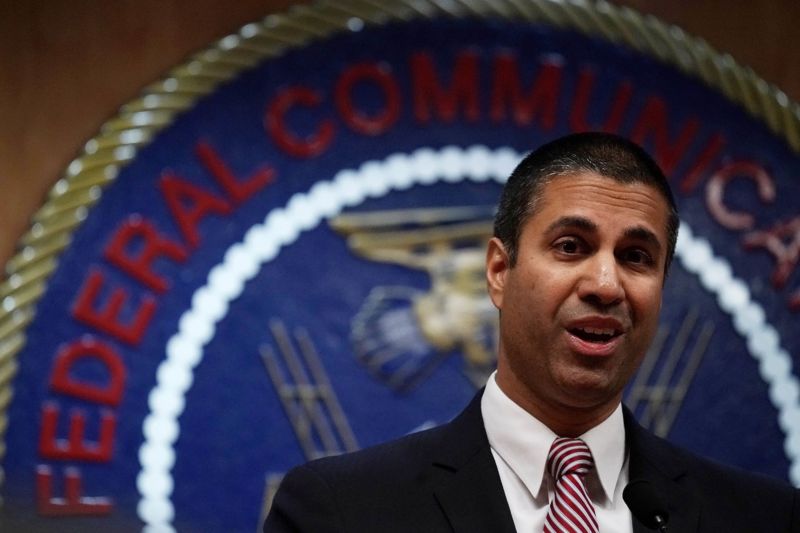
The repeal of net neutrality rules will finally take effect on June 11, six months after the Federal Communications Commission voted to eliminate the rules that prohibit Internet service providers from blocking and throttling lawful Internet traffic.
The repeal will get rid of "unnecessary and harmful Internet regulations," and help spur investment in 5G and other broadband networks, FCC Chairman Ajit Pai said in a statement announcing the effective date.
"For months, many politicians and special interests have tried to mislead the American people about the Restoring Internet Freedom Order," Pai said. "Now everyone will be able to see the truth for themselves."
The repeal vote was in December 2017, but it was contingent on US Office of Management and Budget [OMB] approval of modified information collection requirements. Pai could have allowed the primary portions of the repeal to take effect earlier, but he decided to wait for the OMB to sign off on a new version of the transparency rules that require ISPs to publicly disclose network management practices.
"The OMB approved the transparency rule on May 2, and the FCC set June 11 as the effective date of the new framework to give providers time to comply with the transparency requirement," the FCC said today.
An official notice of the repeal's effective date will be published in the Federal Register tomorrow.
Pai has previously claimed that the net neutrality repeal is already spurring new broadband investment, but his evidence consisted mostly of deployments that were planned during the Obama administration or funded directly by the FCC before Pai was the chair. One day after the December repeal vote, Pai argued on Fox News that net neutrality supporters had been proven wrong by the fact that ISPs didn't start blocking and throttling websites immediately after the vote. He didn't mention that the rules were still in effect.
The repeal will eliminate the core net neutrality rules that prohibit blocking, throttling, and paid prioritization. It will also reclassify broadband as an information service, preventing the FCC from using its authority over common carriers to regulate broadband.
FTC will take over
The Federal Trade Commission will take a bigger role in regulating broadband after the repeal, Pai said today. "The Federal Trade Commission will once again be empowered to target any unfair or deceptive business practices of Internet service providers and to protect Americans' broadband privacy," he said. "Armed with our strengthened transparency rule, we look forward to working closely with the FTC to safeguard a free and open Internet."
The FTC doesn't enforce actual net neutrality rules, but it could try to punish ISPs that promise to abide by net neutrality and then break those promises. ISPs could get around this simply by not making any promises or by scaling their promises back, as Comcast did last year when it deleted a "no paid prioritization" pledge from its net neutrality webpage.
The FTC's authority over some major broadband providers could also be affected by an ongoing court case. AT&T plans to ask the Supreme Court to rule that the FTC cannot regulate the broadband businesses of companies that also offer common carrier services.
That would prevent the FTC from regulating AT&T, Verizon, T-Mobile, and Sprint, whose phone offerings are classified as common carrier services. Pai refused requests to delay the net neutrality repeal until after that court case is over.
“Profoundly disappointing”
FCC Commissioner Jessica Rosenworcel, a Democrat who voted against repeal, blasted Pai's action today.
"This is profoundly disappointing," Rosenworcel said. "The agency failed to listen to the American public and gave short shrift to their deeply held belief that Internet openness should remain the law of the land. The agency turned a blind eye to serious problems in its process—from Russian intervention to fake comments to stolen identities in its files."
Senate Democrats are promoting a bill that would reverse the repeal and fully restore the net neutrality rules. The Senate will vote on the measure by June 12.
reader comments
258